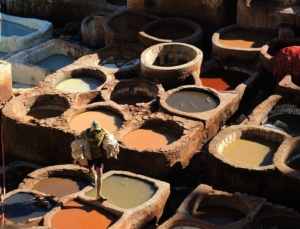How Aid is Improving Life in Informal Settlements in Morocco

At the beginning of the 21st century, nearly 2.5 million Moroccan citizens, close to 10% of the total population, did not have access to water within their homes. Most had to walk to a well to replenish water supplies and were less able to focus on caring for their families or generating income, fostering a distressing quality of life.
Due to these conditions, many Moroccans immigrated from rural areas to cities, and these new populations formed settlements on the edges of urban areas. The state, however, considered these informal settlements in Morocco illegitimate and, as such, decreed them ineligible for essential services like clean water and sanitation. Output-based Aid (OBA) stepped in to remedy the situation and has been instrumental in improving access to fundamental rights in Morocco.
The Success of a Combination of State Assistance and Output-Based Aid
The state developed affordable housing programs, yet the housing created by these programs was still too expensive for some of the inhabitants of the settlements. Programs to improve the quality of life in the informal settlements in Morocco were established as attempts to eradicate the settlements proved unsuccessful. The Global Partnership on Output-Based Aid (GPOBA) delegated a grant to the local governments of Casablanca and Tangiers, the cities that this phenomenon most affects. The grant helped contract different water provider companies to construct the necessary infrastructure to service the settlements.
The Construction of Infrastructure
By eliminating the high fee to connect to a piped network, the OBA grant helped bridge the gap between what the households could afford and how much the water services cost, as they only had to pay the service fee. In 2007, a company called LYDEC constructed the necessary infrastructure for water distribution and waste management in Lamkensa, a settlement on the edge of Casablanca.
The OBA grant also enabled another service provider, Amendis, to provide affordable access to water to those living in the settlements bordering Tangiers. The city of Meknès benefited from the aid program as well. Outside foreign aid was once again used to contract a service provider called RADEM that successfully provided water and waste management services to the city.
The Positive Impact of the Partnership Between Local Government and International Aid
The Department for International Development and the International Finance Corporation of the World Bank mainly financed these OBA programs in Morocco. The OBA method improved the conditions of those living in Moroccan informal settlements. More than 62,000 residents benefitted from the aid project by its completion in 2012. Not being preoccupied with finding clean water opened up opportunities for residents to devote their attention to other activities such as employment, caring for their families and giving back to their communities.
The Growing Probability of Extreme Weather Events
The Moroccan government’s progressive recognition of the existence of informal settlements in Morocco has improved the efforts to create the necessary infrastructure to improve the quality of life of their inhabitants, and there have been more efforts to rehouse these populations through affordable housing programs. In 2019, however, approximately 1.4 million individuals remained in informal settlements in poor urban and peri-urban areas, some without access to essential services.
Additionally, droughts have been more frequent, resulting in limited water resources, an issue that could not be solved with the creation of infrastructure. In 2015 and 2016, rainfall was far lower than the norm and quasi-nonexistent in some regions of Morocco, resulting in scarce water resources. Some cities, such as Zagora, did not have water for days or only a few minutes daily. Predictions seem to indicate that this circumstance will only occur more frequently as the probability of extreme weather events increases. However, the success of the partnership between local government and international institutions shows the real impact this type of initiative can have on human rights in Morocco and elsewhere.
– Tatiana Gnuva
Photo: Flickr
